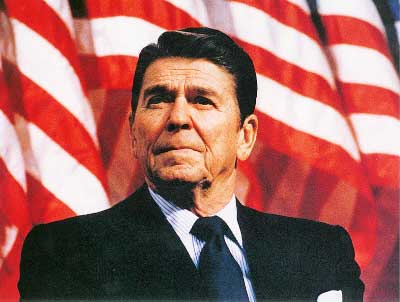
monetarist
Posted on 12/07/2010 3:46:49 PM PST by camerongood210
Could I trouble my fellow FReepers in answering this question? What is the best argument against Keynesian economics? I have just learned a family member has been brain-washed into believing this economic theory by his Econ professor and figured I would take a shot at converting him. I know the basic arguments but he is an ECON major and probably has some good rebuttals. That being the case, what do you guys think?
If I can understand it, anyone should be able to.
Even Obozo.
The Iron Lady had the best argument:
""The problem with Socialism is that eventually you run out of other people's money..." ---Margaret Thatcher
Just ask “If pump priming with a trillion works, why not pump prime with a sextillion (the number of stars in the universe)?
“By a continuous process of inflation, governments can confiscate, secretly and unobserved, an important part of
the wealth of their citizens.
By this method, they not only confiscate, but they confiscate arbitrarily; and while the process impoverishes
many, it actually enriches some.
The process engages all of the hidden forces of economic law on the side of destruction, and does it in a manner
that not one man in a million can diagnose.”
-John Maynard Keynes Economic Consequences of the Peace, 1920-
John Maynard Keynes,
Homosexual and child molester.
http://bioleft.tripod.com/keynes.htm
Everytime I see “Keynesian” I think that O wants a “Kenyan” economy. I guess I’m not that far off.
Keynesian theory centers on increasing aggregate demand by increasing government spending. The monetarists are convinced that keynesians are deluded, so the money quantity theory is the solution. The equation MV=PQ is relevant. Monetarists are convinced that the velocity of money and the output levels are static, therefore increasing the money supply directly impacts the price level. This means that the Keynesian practice of tweaking the money supply based on discretionary interpretation of data to produce an indirect effect on the economy is dangerous. The conservative thinking manifested in the monetarist “hands off” approach is the evidence that Americans have freedom.
Control is an allusion. Economists are paralyzed by the thought of deflation they can’t control. Prices go down, and producers can’t afford to produce. Everything goes spiraling down, for awhile. Economists can’t control the process or the outcome, so they print money and inflate. If that were all there is to an economy, we would be doing much better now than we are, and the inflate, inflate, inflate philosophy would balance out between production, prices, jobs and incomes, problem solved. But that’s not reality, is it? It’s academia, the wonderful world of the Keynesian Ivy-League, where everything revolves around government and more government, control and more control, and it might be okay, if they weren’t wrong, but they are.
bump for later
Keynes wrote a lot of things about economics. What is usually referred to as “Keynesian economics” is stimulus, generally assumed to be deficit, spending by the government during downturns.
It is very important to remember that this spending is supposed to be, according to Keynes, offset by reducing spending during boom times. A lot of folks forget this part when bashing “Keynesian economics”.
The problem with “Keynesian economics” is that, while potentially reasonable in theory, it fails (and is never tried) in practice. Economic downturns are too short for government intervention. There aren’t enough “shovel ready” projects (especially once you get the EPA, et al, involved), so the spending actually ends up occurring too late. Also, when did government ever back off? [During the Reagan years, we ran up the debt to break the Soviet Union, which may have saved us money over the long run, but after that we never hit the brakes].
Please note that what I have written above are thoughts I would use when discussing Keynes with a liberal or other idiot. I think a lot less of Keynes’ theories than one might assume reading the above.
It's worth remembering that in 1801, when Jefferson became president, the US national debt was around $100 million, about 10 times annual federal revenues. This was literally "the cost of freedom," and would correspond today to a national debt around $30 trillion. Since our actual national debt is $13+ trillion, the government is in better financial shape today than it was in Jefferson's time. And at the time, Jefferson's number one priority was paying down the national debt. So, how did he do it? How does ANY wise government ever increase its revenues? Yes, that's right! JEFFERSON REDUCED GOVERNMENT SPENDING AND CUT TAXES. -- BroJoeKThank BroJoeK, and for that matter, thanks President Jefferson.
It has failed every time it has been tired.
Keynesians believed you couldn't have high inflation and high unemployment at the same time: there was a trade-off between the two and unemployment fell as the economy heated up and inflation became a problem.
During the 1970s, though, we had just that -- high inflation and high unemployment: stagflation.
So history proved Keynes and the Keynesians wrong.
Of course they went back to the drawing board and tried to rework their theories to develop a neo-Keynesian approach that borrowed heavily from other schools of thought.
Obama's stimulus package, though, has a "retro" look to it, as though his people hadn't really taken the critics into account.
It's a long read, but there's enough eye-opening material to keep you going. I read it a few times when in university.
What makes this book special: Hazlitt took on the General Theory itself. There's no wiggle room for those who would claim that The Failure 'attacks a straw man'.
Where does a government get money with which it can stimulate the economy? It borrows it from the private sector. That is like filling a swimming pool by dipping water out of one end and pouring it back into the other end.
Another example: If I took one dollar out of your left pocket and put 90 cents back in to your right pocket, would you feel stimulated?
Taking money out of the free market and having the government spend it does nothing more than introduce a whole new layer of inefficiencies.
Disclaimer: Opinions posted on Free Republic are those of the individual posters and do not necessarily represent the opinion of Free Republic or its management. All materials posted herein are protected by copyright law and the exemption for fair use of copyrighted works.